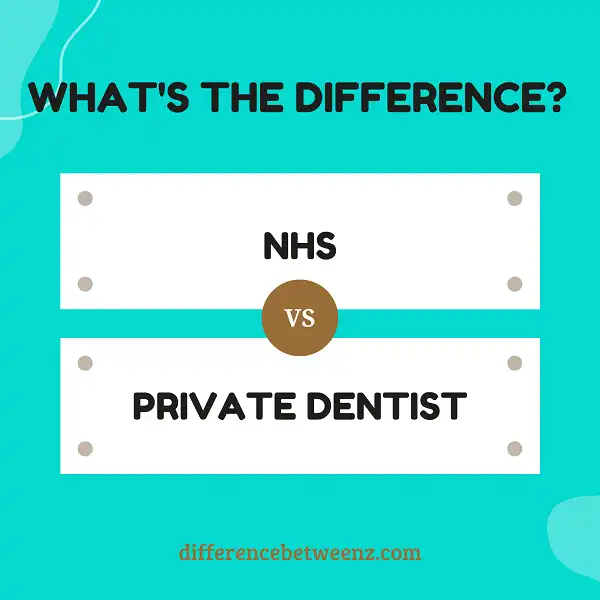There are many people who are unsure of the differences between NHS national health service dentists and private dentists. Both have their own advantages and disadvantages, which this blog post will explore in depth. So, whether you are currently weighing up your options or just curious about the topic, read on for a comprehensive overview of NHS and private dental care.
What is NHS?
NHS National Health Service is a healthcare system that provides free medical care to all UK residents. The NHS was established in 1948 and is funded through taxes. It is the largest employer in the UK, with over 1.3 million employees. The NHS provides a variety of services, including GP services, hospital care, mental health care, and community health services. NHS England is responsible for the day-to-day running of the NHS, while NHS Improvement is responsible for overseeing NHS England and ensuring that it meets its targets. The NHS is constantly evolving to meet the changing needs of the UK population, and it remains one of the most popular healthcare systems in the world.
What is Private Dentist?
Private Dentist is a type of dentist that you pay to see, instead of using dental insurance. Private dentists often have longer appointment times and offer more personalized care. They also tend to be more expensive than dentists who accept dental insurance. Private Dentist can offer a variety of services, including teeth cleaning, fillings, crowns, and veneers. Some Private Dentist even offer cosmetic services, such as teeth whitening and braces. If you are looking for the best possible dental care, Private Dentist is often the best option.
Difference between NHS and Private Dentists
NHS National Health Service provides free dental care to patients in the United Kingdom who are eligible for NHS treatment. NHS dental treatments are available at a fixed price, and patients can choose from a range of NHS-registered dentists. Private Dentists are not registered with the NHS and therefore do not receive government funding. They are able to charge patients whatever they deem appropriate for their services. Private Dentists typically offer a wider range of treatments than NHS Dentists, and they may be able to provide faster and more convenient appointments. However, private dental care can be very expensive, and it is not always covered by health insurance. As a result, patients should carefully consider their options before choosing a dentist.
Conclusion
If you’re in the market for a new dentist, it’s important to understand the difference between NHS and private dentists. On one hand, NHS Dentists are funded by the government and offer lower rates, while private dentists usually have higher prices but may offer more convenience or specialized services. Ultimately, which option is best for you will depend on your personal needs and budget.


